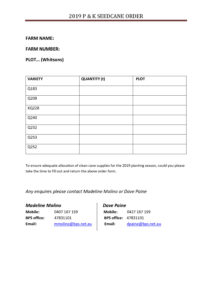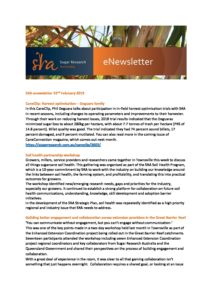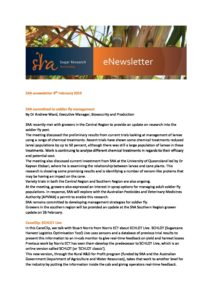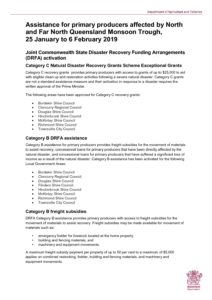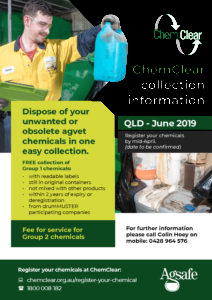PUMPSTATION UPDATE as at 26th February 2019
Southern Division
Warrens Gully Pump Station:
Pump 1 – Unavailable (wet). River levels need to subside further.
Pump 2 – Pumping.
McDowells Pump Station:
Pump 1 – Unavailable (wet). River levels need to subside further.
Pump 2 – Unavailable (wet). As above.
Pump 3 – Pumping.
Down River Pump Station:
Pump 1 – Unavailable (silted up). Divers have undertaken visual inspections with desilting to be conducted Thurs 28th Feb by Commercial Divers
Pump 2 – Unavailable (silted up). As per Pump 1.
Northern Division:
Plantation Creek Pump Station:
Pump 1 – Available. Staff have conducted maintenance. Pump is not 100%, but OK to run in emergency.
Pump 2 – Pumping. Was started late afternoon (Fri 22nd Feb) and continues operating.
Pump 3 – Available. Was started for a short period trial, late yesterday afternoon (Mon 25th Feb).
Rocks Pump Station:
Pump 1 – Pumping. Was started late yesterday afternoon (Mon 25th Feb) and continues operating.
Pumps 2 & 3 – Unavailable. Staff completed maintenance, however pump chambers require desilting/dredging; to be conducted Fri 29th Feb by Commercial Divers.
Pump 4 – Unavailable. Needs major repair.
Rita Island Pump Station:
Pump 1 – Pumping. Was started earlier last week and continues operating.
Pump 2 – Available.
River Pump Stations: all stations do not have ideal pump intake conditions, due to silt/sand deposited from river run. Desilting and sand dam reconstruction to be conducted when river level subsides further.
Relift Pump Stations: all stations are available and currently pumping.
Irrigators are urged to use Groundwater as an alternative supply to Open Water (pending availability).
